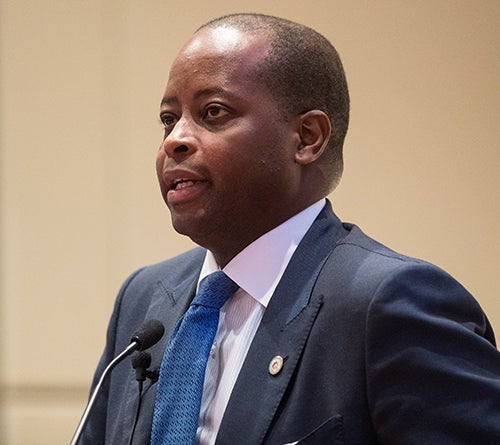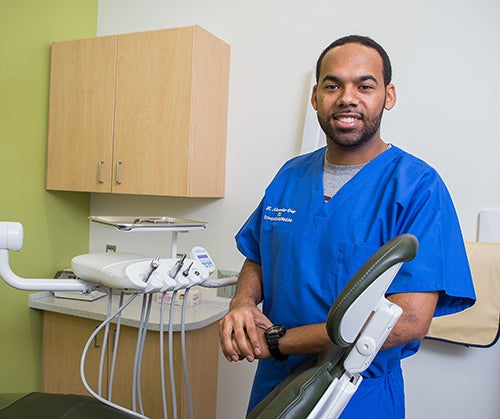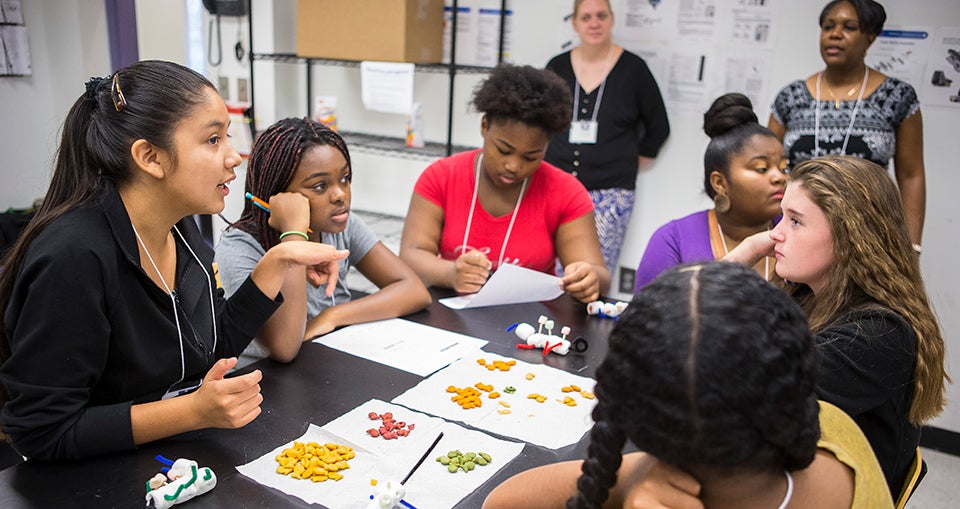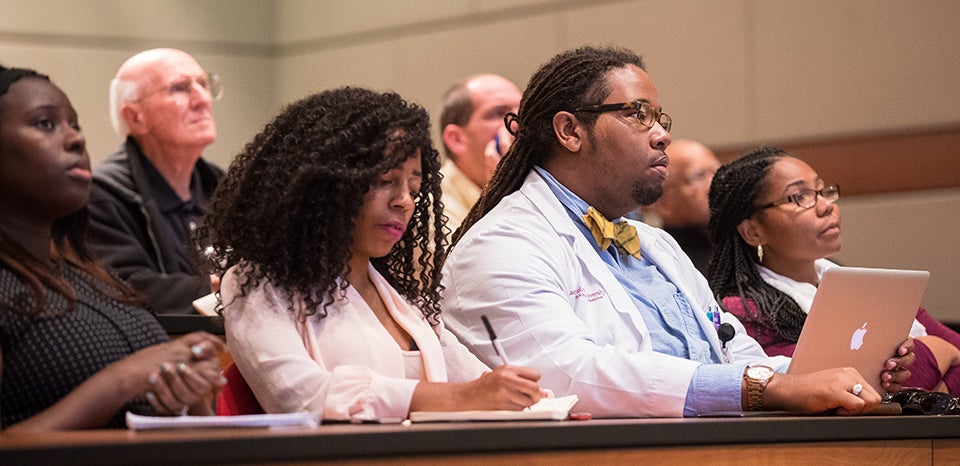PIPELINES BRING PROGRESS
University strives to provide opportunities for all students
East Carolina University has a lot to be proud of in terms of the opportunities it provides for students from all backgrounds, but administrators say there is still work to be done.
Dr. Wayne Frederick, president of Howard University, visited ECU on Nov. 7 to tour the campus, meet with administrators and give a presentation on Advancing Diverse Pipelines in STEM, Medicine and Health.
Frederick highlighted the importance of training doctors from minority populations, pointing out that they are most likely to return to those communities to provide care. He provided a historical background, explaining that prior to a 1910 report by Abraham Flexner, there were seven medical schools for black students.
Flexner’s report had a marked negative impact on those schools; the number decreased to two. Between 1920 and 1964, Frederick said, only 3 percent of students entering medical school were black, and today, that number still lags behind the representation of blacks in the general population.
Historically black colleges and universities (HBCUs), Frederick said, play an important role in training minority physicians, but he complimented the efforts of the Brody School of Medicine, which has a higher percentage of black students than the national average. Nationally, only 6.3 percent of 2016 medical school graduates were black, according to the American Association of Medical Colleges; Brody’s percentage was 11.7.

Frederick discussed the importance of efforts to provide opportunities for minority students and the role of historically black colleges and universities.
“African-Americans who graduated from high school last year, a greater percentage of them enrolled in college than their white counterparts for the first time in the history of this country,” Frederick said. “So African-Americans want to go to college, that’s not an issue. Resources clearly are an issue, and I think that’s where we have to bridge the gap. It’s not an issue of desire.”
He discussed the role of implicit bias in medical training and care, and the importance of mentorship. Society has an issue with where it sets the bar for minority youth, especially African-American males, he said.
“There is nothing like instilling confidence. … Their mindset is extremely different once they have that confidence embedded in them, and that’s what we don’t give African-American males in this country,” Frederick said. “They’re not getting confidence from the home environment, and they’re not getting it from all of us around them. We are not saying to them, on a consistent basis, you can be whatever it is you want to be.”
One way to help instill confidence and teach young people about their options is to expose them to STEM (science, technology, engineering and math) and health care fields. ECU’s School of Dental Medicine has programs each year to do just that, said Dr. Margaret Wilson, vice dean and associate dean for student affairs at the school of dental medicine.
“We have a two-and-a-half-day program called Preparing Tomorrow’s Dentists, which is for students who align with the mission of our school – students from underrepresented minorities, rural areas and disadvantaged backgrounds,” she said. “The program includes learning more about dentistry as a career, and they have a chance to learn about the application process, learn how to write a good personal statement and talk about resources for preparing for the dental admissions test.”
The program includes hands-on activities such as performing cavity preparations in a simulation lab, working on mannequins and bending orthodontics wire. It takes place within two and a half days in the summer, so students with jobs or other summer programs can still participate. A shorter, but similar, one-day program is held on a Saturday in the fall or spring at a private pediatric dental office in Burlington.

ECU’s School of Dental Medicine recruits students from rural areas in the hopes that they will return to provide care to those populations.
ECU’s dental school also recruits students from colleges and universities throughout the state, including HBCUs, and offers scholarship for students from disadvantaged backgrounds through a grant from the U.S. Department of Health and Human Services. The school’s eight community service learning centers in rural areas are another means of providing care while also exposing members of those communities to the possibility of a career in dentistry.
“One thing we know is that people from disadvantaged backgrounds, people from rural areas and people from minority groups are more likely to provide care for people in those groups, so it’s important for us to develop a diverse oral health care workforce,” Wilson said.
The dental school’s efforts have led to a student body made up of more than 25 percent minority students, significantly higher than the national dental school average of about 14 percent.
Overall, ethnic minorities make up 25 percent of all ECU students as of fall 2016.
There are also undergraduate programs at ECU devoted to recruiting a diverse student body, including programs that expose female students to careers in STEM fields. One example is the College of Engineering and Technology, which regularly reaches out to middle and high school students in the region.
“Our industry partners stress their need for a diverse engineering and technology workforce,” said Dr. David White, dean of the College of Engineering and Technology.
“Our popular STEM Girls program exposes eighth-grade girls to various STEM degrees offered at ECU,” he said. “This program will be replicated at several community colleges in our region this spring. We also host summer experiences that focus on underrepresented groups such as our Engineering and Technology Academy for girls.”
White said there is also a student-led effort funded by a grant from Google to encourage high school girls to study computer science.
“The need to grow a diverse pipeline is always at the forefront of our recruiting efforts,” he said.
Last year, ECU and the University of North Carolina at Pembroke launched a partnership to increase the number of physical therapists working in eastern North Carolina.
The goal of that program, said Dr. Amy Gross McMillan, associate chair of the Department of Physical Therapy, is to recruit students from Robeson County and surrounding areas who would likely return to serve that area. UNCP is committed to serving students of Native American heritage and other minorities, and the program, still in its infancy, could help bring more of those students to ECU’s health sciences campus.

The university also has programs to recruit middle and high school girls into STEM fields.
